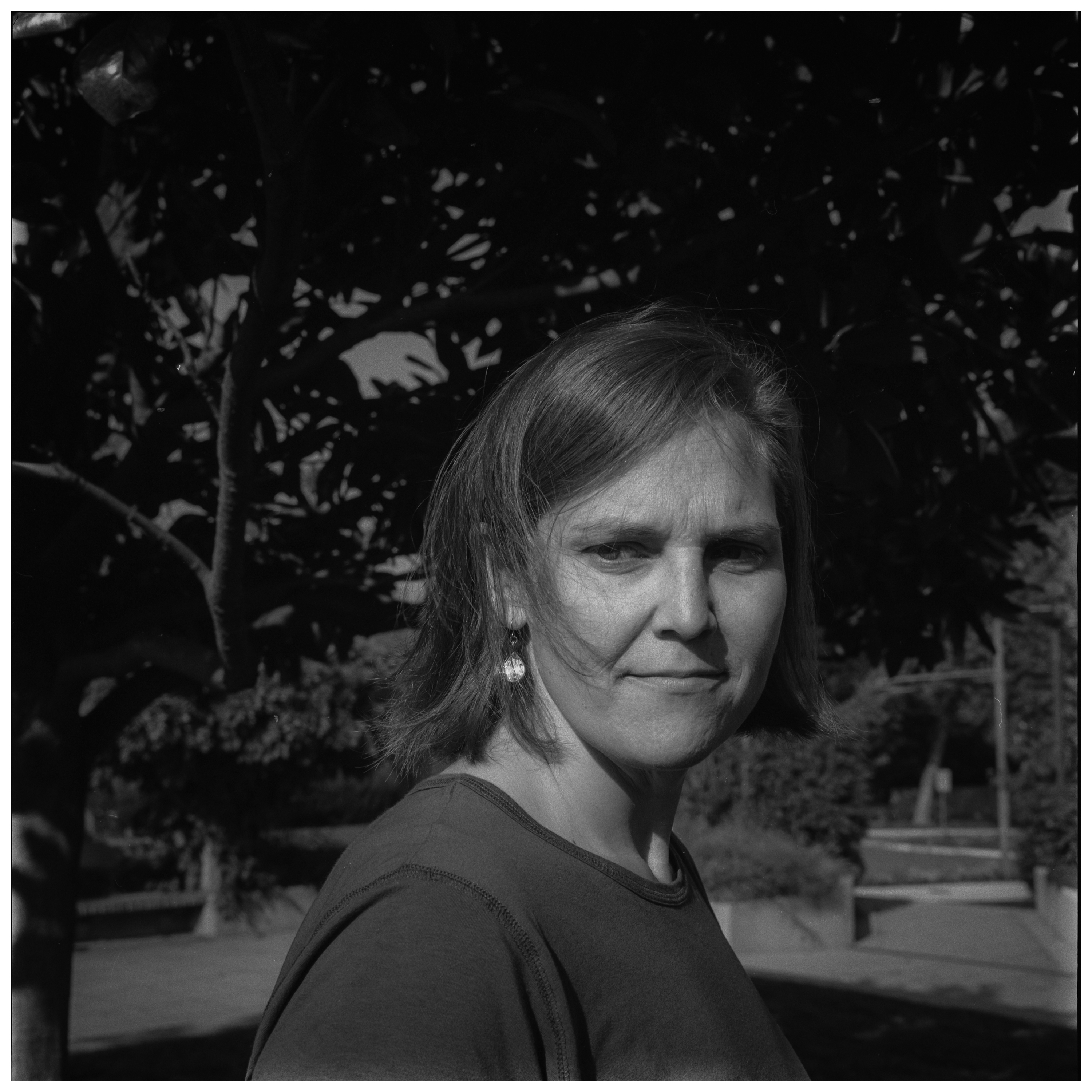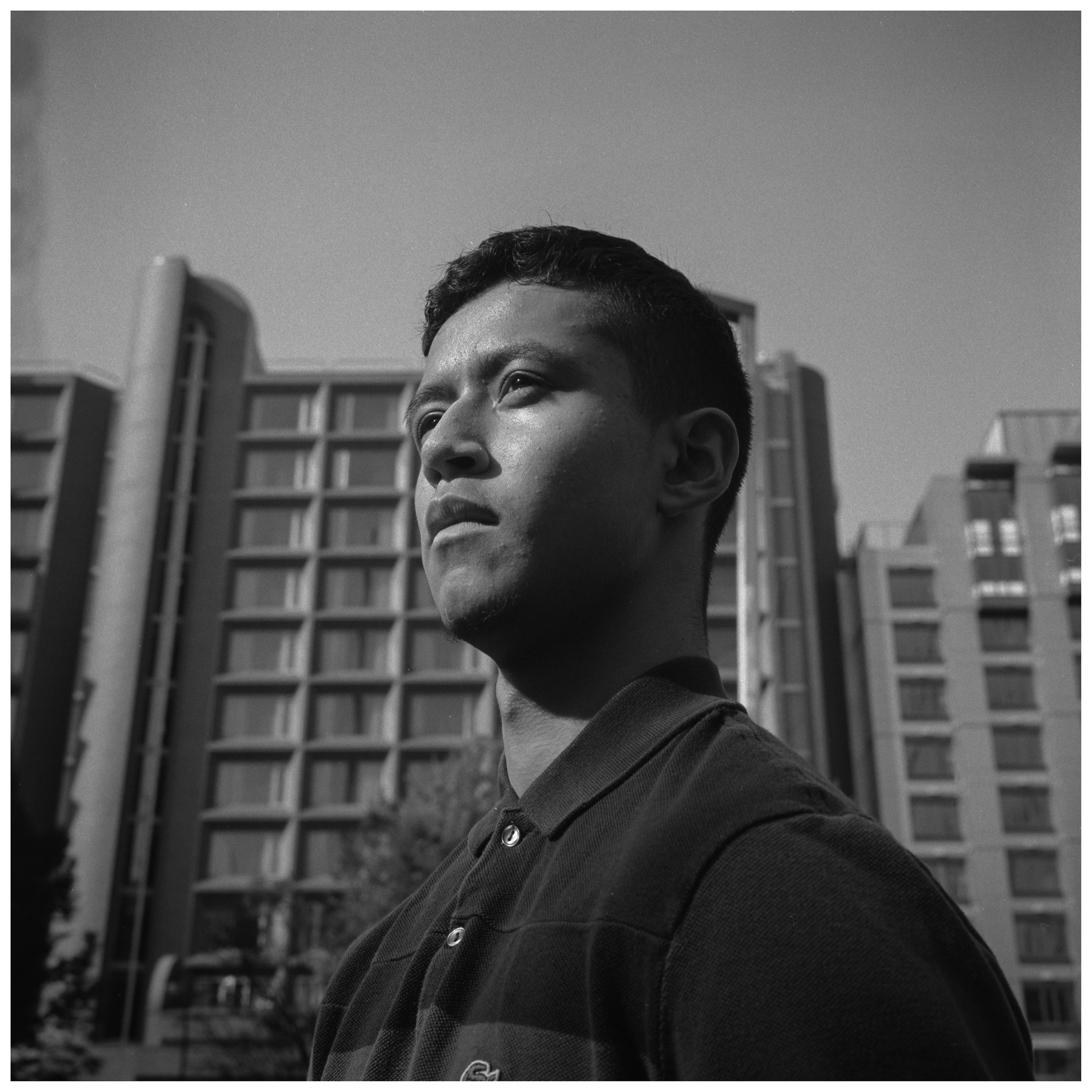October 18, 2020

Naomi Hudson, 18
If Naomi could have voted earlier, she would have. The University of British Columbia student became eligible to vote in April 2020 when she turned 18 — just a few months after the federal election, so this is the first time she gets to cast a ballot.
"I'm super excited," she says. "Just finally having the ability to exercise my civil right to vote" even if it's in the middle of a pandemic.
She has been engaged in politics as a teenager, volunteering for the B.C. NDP in the previous 2017 provincial election and then later for her MLA, and wants to see the voting age lowered to 16. "You can work and pay taxes, but you can't vote? How is that fair?"
The issues that matters most
Hudson is watching the parties closely to see how they will support young voters like herself. "Obviously COVID-19 has wreaked havoc on the job market and on the economy, and it specifically impacted more service-based, in-person type sectors. And those are sectors that young people disproportionately tend to work in."
As a Black woman, Hudson says issues social equality and reconciliation are also close to her heart. While she thinks it was a positive sign that B.C. became the first jurisdiction in Canada to pass legislation implementing the United Nations Declaration on the Rights of Indigenous Peoples, she was also disappointed with NDP Leader John Horgan's "I did not see colour" comment at the leaders' debate.
"He apologized, but hopefully he takes that as a lesson on how to approach conversations around race, and he needs to better."
Voting during the pandemic
While she wanted to vote in person, Hudson plans to vote by mail-in ballot because of the pandemic. "That definitely reinforces the need for me to vote as early as as possible just to make sure that everything gets processed on time."

Ali Saeid, 30
This won't be the first time Ali Saied has voted, but it's the first time he believes the vote will actually count for something. He immigrated from Iran five years ago and became a Canadian citizen in February 2020. While he has cast many a ballot in Iran, he says the democratic process felt like a sham. That's why he's not taking this opportunity to vote in B.C. lightly. "Elections in Canada are inherently a free election."
Saeid wants to encourage immigrants like himself to vote, and hopes to see it become mandatory in Canada for all citizens to vote. "People that might be the first-time voters or new immigrants like me, that they just don't know whether they should vote in this pandemic or not ... maybe there is a language issue. I would say definitely do it."
The issues that matters most
Saeid says he's not a one-issue voter, but he wants to see a concrete vision from the major parties to tackle the opioid crisis. "Not because it is affecting me personally, but I think how we are dealing with it defines us as a community." He says all the parties have acknowledged it is a crisis, but asks what is the game plan to get us out of this.
Voting during the pandemic
Saeid is frustrated that a snap election was called during the pandemic. "I don't see any justification for calling an early snap election. I'm mad at the political party [the NDP], because for me, it's not convincing the reasons they are providing."
He requested a mail-in ballot and said the process was easy. "And don't ever forget, when you are not voting, you are just letting other people decide for you."

Chelsey Harmon, 36
If there's a prize for 'most excited to vote,' Chelsey Harmon might just get it. As an American citizen, she's been closely watching the U.S. presidential election and has already cast her ballot. But Harmon has also been living in B.C. for the last 10 years, and recently became a Canadian citizen in February 2020.
"I was slightly sad that there's not going to be a federal election because I thought that that would be just the trifecta. The U.S. federal, the B.C. provincial and the Canadian federal election. But it's okay. I've gotten over it since then," she said.
Some might say the stakes are slightly higher in the American election, but Harmon says voting in the B.C. election is just as important to her. "To finally be able to use my vote as my voice rather than just my voice is a privilege that I don't take lightly and I'm glad to finally get to use," she said. "Up to four more years of a party being in power and setting the tone for how we're going to recover from COVID is a pretty big deal."
And while the discourse is certainly more civil in the B.C. election compared to the U.S. election, Harmon says she's pleasantly surprised by how encouraging other Canadians have been of her finally getting the vote. In contrast, she says many fellow Americans have told her she should not be voting in both elections as a dual citizen.
The issues that matters most
Harmon says affordable and safe housing is an important election issue for her, as well as the environment. "I would want to know from these politicians how they're going to keep working towards growing us towards a more green economy as we recover from from COVID."
Voting during the pandemic
Harmon has mailed many an absentee ballot as an American citizen. Although she wanted to go to a polling station in person for her first time voting in Canada, she says she will do a mail-in ballot instead. "I have friends who are poll workers in the States and just the fears and concerns they have with COVID, I've decided not to go in person."

Edgard Villanueva-Cruz, 18
Edgard Villanueva-Cruz is ready for change. The 18-year-old is a member of the Tahltan Nation and turned 18 in September, just days after the snap election was called.
He says if there is apathy toward voting among young people and Indigenous Peoples, it's because of the history of this country. "We're thinking about the previous elections. What was promised, what happened, what didn't happen. So as youth, we are very, very critical of that today because we are the leaders of tomorrow.
The issues that matters most
Villanueva-Cruz sees B.C.'s adoption of Bill 41 which enshrined the United Nations Declaration of the Rights of Indigenous Peoples into provincial law as a step toward reconciliation. Now, he wants the next government to go further.
Villanueva-Cruz knows exactly what he wants to ask the political leaders: "Will you implement urban Indigenous self-government under the recent adoption of Bill 41 in the province of British Columbia?"
As a youth who lives in government care, Villanueva-Cruz also wants to see the parties give serious thought to the support systems that are in place for youth, including counseling and therapy, and also help young people find jobs. "It's had such an impact on our mental health."
Voting during the pandemic
Villanueva-Cruz plans to cast his ballot in person, and he hopes the pandemic will not have a significant impact on voter turnout. "I'm really thinking about the amount of people that will vote this year in the midst of the pandemic and what those statistics will look like."
